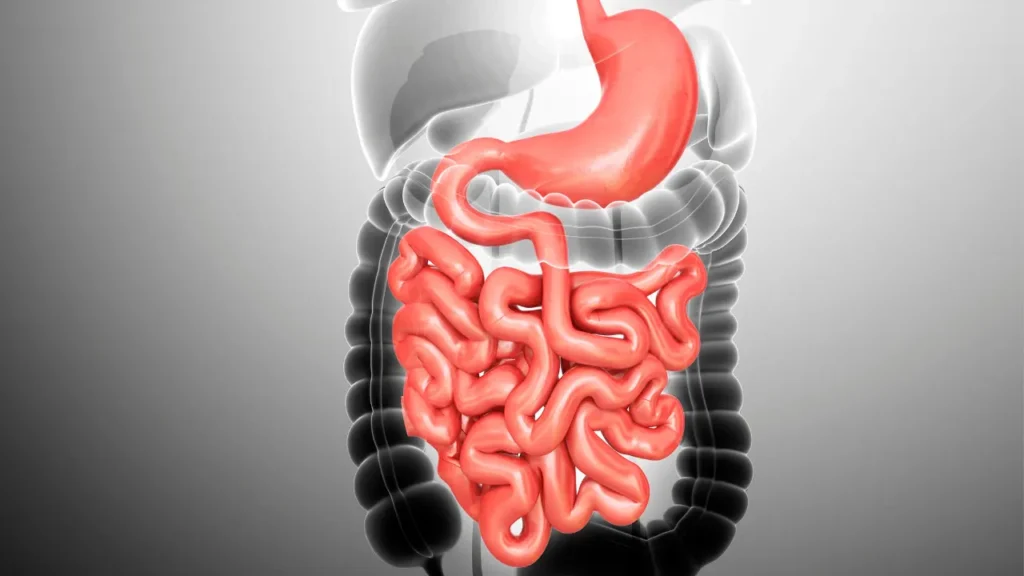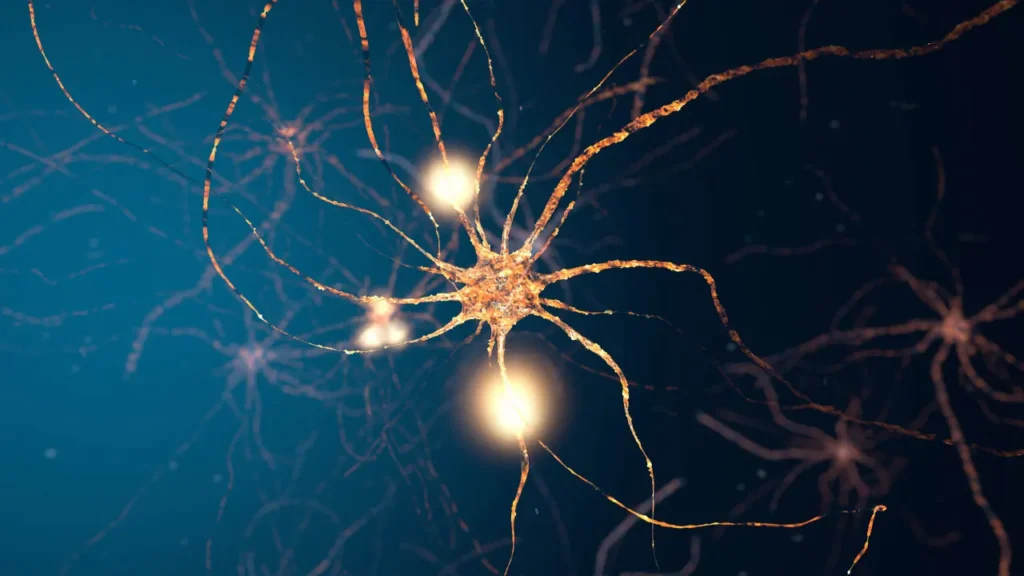The pancreatic serine protease known as trypsin has long been known for its vital function in the digestive tract. Nevertheless, more recent studies have broadened the range of its recognized advantages beyond digestion, investigating its capacity to improve cognitive processes like attentiveness, concentration, and general cognitive abilities. Trypsin’s nature will be explained in this article, along with its health benefits, ideal dosage, adverse effects, possible interactions with other substances, and the most responsible ways for those who want to use this enzyme as a nootropic supplement.
You May Also Like:
5 Things to Consider When Choosing the Best Mushrooms for Mental Health
Trypsin: Benefits, Dosage, Side Effects, Drug Interactions, and Other Important Information is an original (NootropicsPlanet) article.
Nature of Trypsin
The enzyme trypsin is essential to the human digestive system. It works mainly in the small intestine, breaking down proteins into constituent amino acids and peptides. Trypsinogen, an inactive form produced in the pancreas, is activated in the small intestine by enterokinase, another enzyme. Activating trypsin is an essential stage in the digestion of proteins, which helps the body absorb and use nutrients.
Trypsin is chemically classified as a serine protease because its active site contains a serine residue. This classification is important because the serine residue directly contributes to the breakage of peptide bonds in the enzyme’s mechanism of action. Trypsin is remarkably selective; it preferentially cleaves peptide bonds at the carboxyl side of amino acid residues with basic side chains, such as arginine and lysine. The distinct configuration of the trypsin active site, which enhances the molecular and physical characteristics of arginine and lysine, is responsible for this selectivity.
Health Benefits of Trypsin
Improved Digestive Health
Primary Function: Trypsin’s most well-established health benefit lies in its crucial role in the digestive system. As a proteolytic enzyme, it is essential to break down proteins into peptides and amino acids, facilitating their absorption in the small intestine. Efficient protein digestion ensures the body receives the necessary building blocks for tissue repair, growth, and energy production.
Impact on Nutrient Absorption: Trypin optimizes the protein digestion process, ensuring the maximum absorption of amino acids, which are vital for numerous bodily functions, including the synthesis of hormones, enzymes, and neurotransmitters. This efficient nutrient absorption is foundational for maintaining overall health and supporting the body’s metabolic processes.
Anti-inflammatory Properties
Mechanism: Trypsin exhibits anti-inflammatory properties, which are beneficial for reducing inflammation throughout the body, including in the gastrointestinal tract. This anti-inflammaion can particularly benefit individuals with inflammatory bowel disease (IBD) or pancreatitis.
Clinical Implications: Trypsin’s anti-inflammatory effects can also extend beyond the digestive system, potentially contributing to alleviating systemic inflammation, which is a risk factor for many chronic diseases, including cardiovascular diseases and type 2 diabetes.
Wound Healing and Tissue Repair
Promotion of Healing: Trypsin has been used in various clinical settings to promote wound healing and tissue repair. Its proteolytic action can help remove necrotic tissue and reduce scar tissue formation, facilitating the natural healing process.
Applications: This benefit is particularly relevant in treating burns, ulcers, and other types of wounds where accelerated tissue repair is desirable. By improving wound healing, trypsin can contribute to faster recovery and better outcomes in wound management.
Potential Cognitive Health Benefits
Gut-Brain Axis: Although direct research on trypsin’s impact on cognitive health is limited, its role in supporting digestive health indirectly benefits cognitive function through the gut-brain axis. Efficient digestion and nutrient absorption can influence brain health, given that neurotransmitters like serotonin are primarily produced in the gut.
Anti-inflammatory Role in Cognitive Function: Trypsin’s anti-inflammatory properties might protect against neuroinflammation, a condition linked to cognitive decline and various neurodegenerative diseases, including Alzheimer’s. By reducing inflammation in the brain, trypsin may support cognitive functions such as memory, attention, and overall brain health.
Immune System Support
Modulation of Immune Response: Trypsin’s proteolytic activity can influence the immune system’s functioning. This activity can modulate the immune response and help manage autoimmune diseases and allergies.
Support During Infections: The enzyme’s ability to break down proteins extends to the potential degradation of viral and bacterial proteins, thereby supporting the body’s immune response during infections.

Chemistry of Trypsin
Trypsin is a serine protease enzyme that is pivotal in protein digestion. As a member of the hydrolase class, it catalyzes the hydrolysis of peptide bonds, specifically at the carboxyl side of lysine and arginine residues. The enzyme’s specificity is rooted in its unique molecular structure, particularly in the active site, where a serine residue (Serine 195) acts as a nucleophile in the catalytic mechanism.
The active site of trypsin contains a catalytic triad composed of Histidine-57, Aspartate-102, and Serine-195. This triad is essential for the enzyme’s activity, facilitating the cleavage of peptide bonds through a series of well-coordinated steps:
- Substrate Binding: The substrate, a peptide, binds to the trypsin molecule at the active site. Trypsin’s specificity pocket accommodates the basic side chains of lysine or arginine, positioning the peptide bond for cleavage adjacent to the serine residue.
- Nucleophilic Attack: The serine oxygen attacks the carbonyl carbon of the peptide bond, forming a tetrahedral intermediate. This process is stabilized by forming a hydrogen bond with Histidine-57, which acts as a base by accepting a proton from Serine-195.
- Transition State Stabilization: The tetrahedral intermediate is stabilized by the oxyanion hole, a structural feature of trypsin that interacts with the negatively charged oxygen atom of the intermediate.
- Cleavage of Peptide Bond: The tetrahedral intermediate collapses, leading to the cleavage of the peptide bond. This results in the formation of an acyl-enzyme intermediate and the release of the first half of the substrate.
- Water Activation and Release of Second Product: Water, activated by Histidine-57, attacks the acyl-enzyme intermediate, leading to another tetrahedral intermediate. This collapses, regenerating the free enzyme and releasing the second half of the substrate.
This catalytic mechanism allows trypsin to efficiently break down proteins into smaller peptides and amino acids, facilitating their absorption and utilization by the body.
Physiological Mechanism of Action
The physiological impact of trypsin extends beyond its well-characterized role in protein digestion within the gastrointestinal tract. Its influence on cognitive health and potential as a nootropic supplement involves several mechanisms, albeit more research is needed to elucidate these pathways fully.
- Protein Digestion and Nutrient Absorption: Trypsin breaks down dietary proteins into absorbable peptides and amino acids, ensuring the availability of essential nutrients necessary for various bodily functions, including neurotransmitter synthesis. Amino acids like tryptophan and tyrosine are precursors to serotonin and dopamine, respectively, which play significant roles in mood, alertness, and cognitive functions.
- Gut-Brain Axis: Trypsin may influence cognitive health indirectly through the gut-brain axis, a complex communication network that links the gastrointestinal system with the central nervous system. Efficient digestion and nutrient absorption can impact gut microbiota composition, affecting the production of gut-derived neurotransmitters and neuroactive compounds and potentially influencing brain health and cognitive functions.
- Anti-inflammatory Effects: Emerging research suggests that trypsin, along with other proteolytic enzymes may have anti-inflammatory properties. Inflammation within the brain is linked to various cognitive impairments and neurodegenerative diseases. Trypsin could contribute to a neuroprotective environment conducive to maintaining or enhancing cognitive function by modulating inflammatory processes.


Optimal Dosage of Trypsin
The best trypsin dosage for improving cognitive function depends on several variables, such as age, underlying medical disorders, and the individual’s health status. Because there isn’t much research on trypsin specifically for cognitive functions, there isn’t a recommended dosage that is generally accepted at this time. Nonetheless, trypsin supplements are given within a safe and helpful range in clinical settings. They are frequently coupled with other proteolytic enzymes. Those thinking about using trypsin supplements should speak with medical professionals to customize the dosage to fit their unique requirements.
Side Effects of Trypsin
In general, trypsin is considered safe when administered correctly. Like any vitamin, though, some people may have adverse effects. Gastrointestinal symptoms like nausea, diarrhea, and discomfort in the abdomen can be among them. Even though they are uncommon, allergic responses have been documented and must be treated immediately.
Potential Substance Interactions with Trypsin
Trypsin may interact with blood-thinning drugs like warfarin by amplifying their effects and raising the risk of bleeding, according to possible chemical interactions. This exchange emphasizes how crucial it is to speak with medical professionals before starting a trypsin supplement, particularly for people using medication or who have underlying medical issues.


Best Responsible Uses of Trypsin
Trypsin’s ability to improve cognitive performance and other functions beyond digestion is being explored, which is a promising development in the field of nootropic supplements. Nevertheless, trypsin supplementation should only be used sparingly and responsibly in the quest for cognitive development. Maintaining a healthy weight, engaging in regular exercise, and getting enough sleep continues to be essential for cognitive function. Trypsin supplementation, when done under medical professionals’ supervision, may provide further assistance, particularly for people who want to maximize their cognitive abilities.
Trypsin:
Conclusion
Trypsin has demonstrated notable health benefits in various medical and therapeutic applications, from aiding digestion to managing conditions such as osteoarthritis and sports injuries. While trypsin supplements and topical formulations have shown promise in different clinical settings, further research is needed to fully elucidate their mechanisms of action, optimal dosages, and potential side effects. Additionally, considerations regarding the sourcing and purity of trypsin products are essential to ensure their safety and efficacy. As research advances, trypsin’s therapeutic potential may expand, providing new avenues for improving human health and well-being. However, healthcare professionals should always guide its use to ensure appropriate and safe administration.


References:
- Trypsin Function. Retrieved from: https://www.healthline.com/health/trypsin-function
- The activity of trypsin in the pancreatic juice and blood of poultry increases simultaneously in the postprandial period. Retrieved from: https://www.ncbi.nlm.nih.gov/pmc/articles/PMC9641294/
- Trypsin: Benefits, Side Effects, Dosage, and Interactions. Retrieved from: https://www.verywellhealth.com/trypsin-4777708
Important Note: The information contained in this article is for general informational purposes only, and should not be construed as health or medical advice, nor is it intended to diagnose, prevent, treat, or cure any disease or health condition. Before embarking on any diet, fitness regimen, or program of nutritional supplementation, it is advisable to consult your healthcare professional in order to determine its safety and probable efficacy in terms of your individual state of health.
Regarding Nutritional Supplements Or Other Non-Prescription Health Products: If any nutritional supplements or other non-prescription health products are mentioned in the foregoing article, any claims or statements made about them have not been evaluated by the U.S. Food and Drug Administration, and such nutritional supplements or other health products are not intended to diagnose, treat, cure, or prevent any disease.
